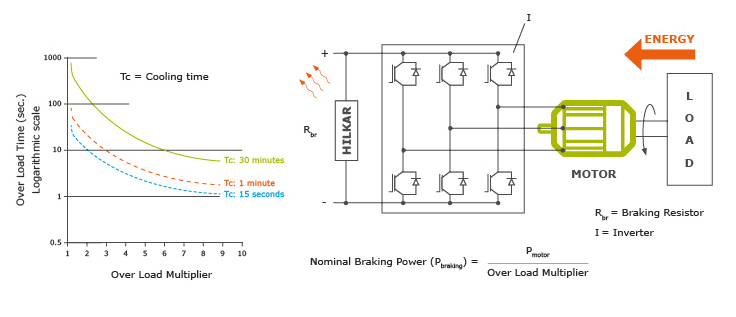- Home
- Resources
- Design Notes
- Dynamic Braking Resistors
Design Notes
Dynamic Braking Resistors
Mostly You need a braking resistors solution when you are experiencing…
- Frequent tripping on the drive due to overvoltage
- Motor and drive overheating and/or damage
- High maintenance costs or reduced equipment life
How does a braking resistor work?
A braking resistor helps to slow down or stop a motor by dissipating excess voltage generated by the decelerating motor. When power is removed from a motor, the load is reduced causing it to turn at a faster rate. The motor acts as a generator, creating electrical energy which flows back into the power circuit. If this rise is voltage is too great the drive will trip on overvoltage or the drive will be damaged.

Braking resistors dissipate the energy generated by the slowing motor (as heat) to ensure that the voltage rise is kept to safe levels to prevent damage to the drive. These resistors can also help to lower the wear on braking components which can extend equipment life, enable faster braking and eliminate the risk of overheating.
Learn More